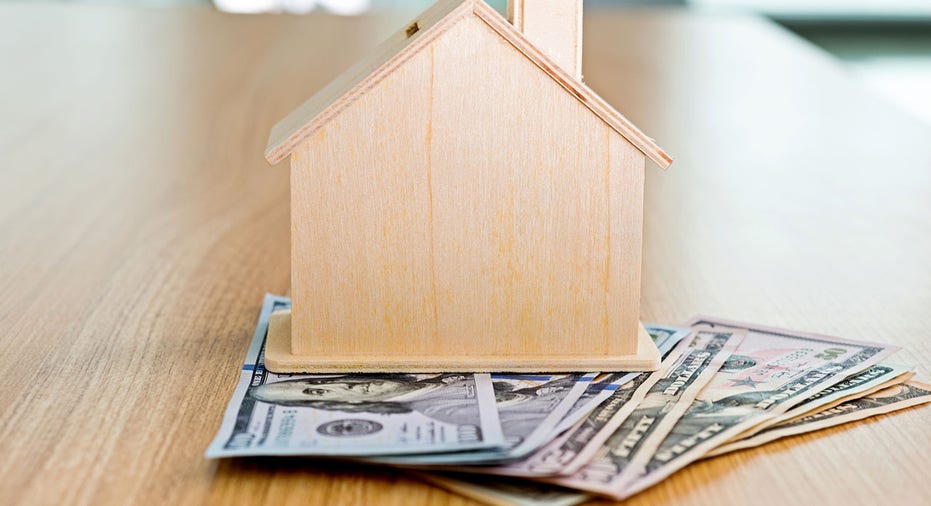Concern over foreclosure increases after forbearance ends 'wildly overestimated,' expert says

As forbearance periods close, one expert says not to expect a wave of foreclosures. (iStock)
As forbearance periods come to an end and homeowners resume making their mortgage payments, one mortgage and foreclosure expert said concerns over foreclosure increases have been "wildly overestimated." Today's housing market provides numerous financial relief opportunities for homeowners who are struggling to make their monthly payments.
Homeowners are currently at an advantage, partly due to historically low interest rates, resulting in competition and high demand driving home prices higher.
"Demographics (millennials reaching prime homebuying age in very large numbers), low interest rates and pandemic-driven trends (migration from urban renter to suburban homeowner) will continue to drive demand, but it will likely slow down a bit until price appreciation slows down, and perhaps even corrects a bit in some of the higher-priced markets," RealtyTrac Executive Vice President Rick Sharga said.
If you are interested in refinancing your mortgage, visit Credible to get in touch with a home loan expert and view your home's equity or see rates for a cash-out refinance from multiple mortgage lenders at once.
RISING HOME PRICES THREATEN TO OVERHEAT SUMMER HOUSING MARKET
How will the housing market will be affected?
Once homeowners exit their forbearance periods, they have several options available to them to resume payments on their mortgage loan. A new servicing rule from the Consumer Financial Protection Bureau stipulates that mortgage servicers can move all missed payments to the end of a loan term, and may not modify the loan in a way that increases monthly payments.
Since the onset of the U.S. government's mortgage forbearance program, the number of homeowners in it has dropped from about 4.5 million in March 2020 to less than 2 million today. Eighty-six percent of the borrowers who have exited the program have done so successfully, Sharga said. There are about 900,000 borrowers scheduled to exit by the end of 2021, and the rest of the borrowers in the program will exit gradually over the following nine months.
But as homeowners exit forbearance, Sharga notes, it will not lead to a significant uptick in foreclosure activity and won't have a major impact on the overall housing market.
"While some borrowers will not be able to recover from the financial distress COVID inflicted on them and will face the choice of selling their home or losing it to foreclosure, there won't be enough of those properties to fix the supply/demand imbalance in the market, and they shouldn't need to be sold at so much of a discount that they'll impact prices in any given market," he said.
If you are struggling to make your monthly payments and want to see what options are available to you such as a lower interest rate or lower monthly payments, check out Credible to compare mortgage refinance options and use a refinance calculator to see your new monthly payment for various loan amounts.
FEDERAL RESERVE ELECTS TO HOLD INTEREST RATES AT 0%
Why foreclosures will stay low, and how you can avoid it
Sharga mentioned several reasons why foreclosures will remain at historic lows, including loan quality, which was extraordinary entering the pandemic. Delinquency rates were lower than historic averages despite an onslaught of natural disasters that inflated the numbers, and foreclosure activity was running 40% below normal levels.
"The concern about borrowers in forbearance going into foreclosure appear to have been wildly overestimated," he said. "In fact, the program has worked exactly as intended and very likely saved millions of homeowners from unnecessary foreclosures.
"Homeowners currently hold a record amount of equity - over $2.3 trillion - and over 70% of homeowners have more than 20% equity, giving them the opportunity to tap into that equity to refi into a lower monthly payment, or sell the house (likely at a profit) rather than lose it to a foreclosure auction."
If you want to get a lower rate through a mortgage refinance, visit Credible to compare multiple lenders at once and get pre-approved without affecting your credit score. Some lenders will even pay certain closing costs such as appraiser fees, application fees or some loan origination fees on your refinanced mortgage.
US HOMEOWNERS INCREASINGLY EXITING MORTGAGE FORBEARANCE, DATA SHOWS
The coronavirus-driven recession has hit certain industries harder than others. Tavel, tourism, retail, restaurants, hospitality and entertainment, for example, were hit the hardest, and those industries tend to be populated by renters more often than by homeowners, Sharga explained.
The economic recovery outpaced expectations, however; about 65% of the jobs lost have already been recovered, and the economy continues to grow at a healthy clip.
Final thoughts
The state of the housing market today makes a foreclosure wave much more unlikely, as homeowners have multiple options available if they continue to struggle with their monthly payments.
"Market dynamics play to the benefit of distressed homeowners today - with more demand than available supply, there's a ready market of buyers to purchase properties from homeowners in financial distress," Sharga said.
Homeowners struggling to make their payments can look at several options, such as moving from a 15-year loan to a 30-year fixed-rate loan, refinancing out of their FHA loan to remove private mortgage insurance or even taking out a home equity line of credit.
Contact Credible to speak to a mortgage refinance expert and get all of your questions answered about your refinance goals, like how to lower your monthly mortgage payment through lower interest rates or eliminating private mortgage insurance from your existing mortgage through a refinance.
Have a finance-related question, but don't know who to ask? Email The Credible Money Expert at moneyexpert@credible.com and your question might be answered by Credible in our Money Expert column.




















